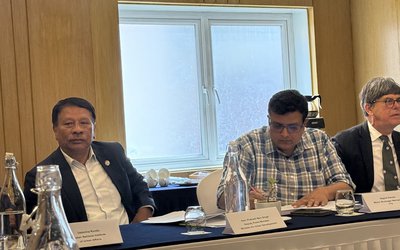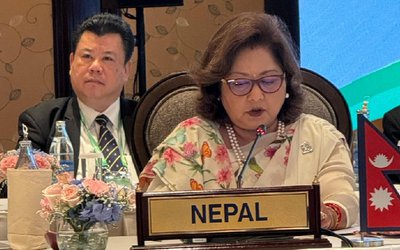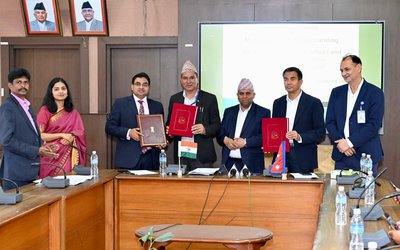
Climate change is one of the most pressing environmental concerns and the greatest global challenges in our society today. Climate change is already happening and there is more to come. Climate change is also not neutral and it is impacting more on those who already face discrimination due to their gender or economic or physical status.
The 24th session of the Conference of the Parties (COP24) to the UN Convention on Climate Change (UNFCCC) is taking place in Katowice, Poland, from 3-18 December 2018. COP24 is expected to work out and adopt a package of decisions to ensure the full implementation of the Paris Agreement. The Paris Agreement is largely about strengthening the global response to the threat of climate change by keeping a global temperature rise this century well below 2 degrees Celsius above pre-industrial levels and to pursue efforts to limit the temperature increase even further to 1.5 degrees Celsius.
What will Nepal do in COP24? No doubt, Nepal is most vulnerable to climate change and climate induced disasters while Nepal’s Green House Gas emission is around 0.027 percent of the global emission. The UN Framework Convention, the Kyoto Protocol and the Paris Agreement clearly recognize the special circumstances and needs of the LDCs and this recognition must be adhered to in every delivery mechanism of the climate finance. It is important that Nepal takes proactive measure to go with the LDC Group to negotiate as a bloc at COP24 to effectively represent their collective needs.

There are a number of areas that Nepal should raise at COP24:
- Advocate for climate justice, framing global warming as a political and ethical issue, focusing on the root cause of climate change, addressing unequal burden to countries and communities, and ensuring right of all people to live in safe, healthy and clean environment.
- Bring the Paris Agreement to life, ensuring that all countries with one set of guidelines to follow in implementing their commitments with clear climate plans, tracking and reporting on efforts for climate transformation. Developed countries should take a lead in mitigating efforts.
- Capacity building of LDCs adapting to climate change, transferring technology, ensuring research, education and training, gender-responsive climate policy, improving communications and negotiation skills.
- Access to climate change finance ensuing Nepal gets adequate support to invest in climate solutions and adapt to climate impacts.
Climate change is not just an environmental issue, it’s about the political and ethical issues. Human activities are root cause of climate change, and it requires huge changes on a global scale from governments to business. While we are trying to promote local solutions through climate change adaptation for global benefits, we need more of global solutions through climate change mitigation for local benefits. This must be taken seriously by the international community.
- World Humanitarian Day 2024: Committing to Peace and Accountability
- Aug 19, 2024
- Nepal Investment Summit: Unlocking Economic Potentials For Growth And Development
- Apr 28, 2024
- Investing In Women: Accelerating Progress
- Mar 10, 2024
- Embracing The 'Empty Chair: Advancing Global Inclusivity And Equitable Development
- Dec 29, 2023
- Mental Health In Youth
- Jul 16, 2023















